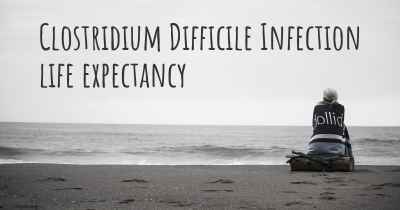Is Clostridium Difficile Infection hereditary?
Here you can see if Clostridium Difficile Infection can be hereditary. Do you have any genetic components? Does any member of your family have Clostridium Difficile Infection or may be more predisposed to developing the condition?

No, Clostridium difficile infection is not hereditary. It is caused by a bacterium called Clostridium difficile, which is typically acquired from contaminated surfaces or through the ingestion of spores. The infection is not passed down from parents to their children through genetic inheritance. However, certain individuals may be more susceptible to developing the infection due to factors such as a weakened immune system or previous antibiotic use.
Is Clostridium Difficile Infection hereditary?
Clostridium difficile infection (CDI), also known as C. difficile or C. diff, is a bacterial infection that primarily affects the colon. It is a common cause of healthcare-associated infections, particularly in individuals who have recently received antibiotics or have been hospitalized. CDI is primarily caused by the bacterium Clostridium difficile, which produces toxins that damage the lining of the colon, leading to symptoms such as diarrhea, abdominal pain, and fever.
When it comes to the hereditary nature of CDI, it is important to understand that hereditary conditions are those that are passed down from parents to their offspring through genetic material. In the case of CDI, it is not considered a hereditary condition. CDI is caused by the ingestion of spores of the bacterium C. difficile, which are commonly found in the environment, particularly in healthcare settings. These spores can survive on surfaces for long periods and can be easily transmitted from person to person.
Transmission of Clostridium difficile infection:
CDI is primarily transmitted through the fecal-oral route. This means that the spores of C. difficile are present in the feces of infected individuals and can be spread to others if proper hygiene practices are not followed. The spores can contaminate surfaces, objects, and hands, and can be ingested by individuals who come into contact with these contaminated sources.
Risk factors for Clostridium difficile infection:
While CDI is not hereditary, there are certain risk factors that can increase an individual's susceptibility to developing the infection. These risk factors include:
- Recent antibiotic use: Antibiotics can disrupt the normal balance of bacteria in the gut, allowing C. difficile to overgrow and cause infection.
- Advanced age: Older adults are more susceptible to CDI, possibly due to weakened immune systems and increased exposure to healthcare settings.
- Prolonged hospitalization: Being hospitalized, especially in intensive care units, increases the risk of exposure to C. difficile spores.
- Underlying medical conditions: Individuals with conditions such as inflammatory bowel disease or weakened immune systems are at higher risk.
- Previous CDI episodes: Having had a previous episode of CDI increases the risk of recurrence.
Prevention and management of Clostridium difficile infection:
Preventing the transmission of C. difficile and managing CDI involves several strategies:
- Hand hygiene: Proper handwashing with soap and water is crucial in preventing the spread of C. difficile spores. Alcohol-based hand sanitizers are not effective against these spores.
- Infection control measures: Healthcare facilities should implement strict infection control practices, including proper cleaning and disinfection of surfaces and equipment.
- Antibiotic stewardship: Appropriate use of antibiotics, including avoiding unnecessary prescriptions and using the narrowest spectrum antibiotic when needed, can help prevent CDI.
- Isolation precautions: Infected individuals should be placed in isolation to prevent the spread of C. difficile to others.
- Treatment: CDI is typically treated with antibiotics that are effective against C. difficile, such as metronidazole, vancomycin, or fidaxomicin. In severe cases, additional measures like fecal microbiota transplantation may be considered.
Conclusion:
In summary, Clostridium difficile infection is not a hereditary condition. It is primarily caused by the ingestion of C. difficile spores, which can be easily transmitted from person to person. While CDI can be a serious and recurrent infection, it can be prevented and managed through proper hygiene practices, infection control measures, and appropriate antibiotic use.








